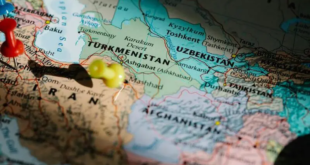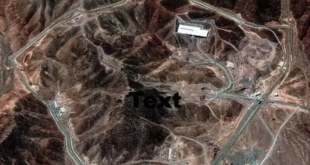THE conventional wisdom says that we have two choices in confronting and containing Iranian nuclear ambitions – United Na tions sanctions and diplomacy, or a military strike to knock out key nuclear sites. But neither option is a good one. U.N. sanctions are relatively tame and don’t go to the heart of how to cripple the Iranian theocracy. A military strike, meanwhile, would solve the regime’s major problem: how to gin up popular support and stay in power. Any attack risks causing nationalism in Iran to soar, rallying the public around a now-unpopular government.
But there is a way to strike hard at Iran and encourage a change in regime or at least in policies: We can stop investing in companies that invest in Iran. Frank Gaffney, a former Reagan Pentagon official, and his group disinvestterror.org list 485 companies that do business in Iran.
Dennis Ross, a longtime Middle East negotiator, told me recently that he felt that disinvestment “could be important in bringing about a change in Iranian policy” on nuclear weapons.
Of course it could: The Tehran regime gets 85 percent of its revenues from the energy sector and needs the cash to pacify the population. With high unemployment and low job growth, the government hangs on by the skin of its teeth by subsidizing prices – gasoline costs 30 cents a gallon in Teheran.
But oil exports have dropped year after year as domestic demand has grown 10 percent annually. Despite rising oil and gas prices, energy revenues to the government have dropped from $55 billion in 2006 to an estimated $44 billion this year.
Current estimates are that Iran’s oil exports will drop in half by 2011, and hit zero three years later. The regime desperately needs new investment to prop up its oil production.
It’s up to the public – and to our leaders – to see that Western companies don’t provide that investment.
Already this month, California, Ohio and Florida have passed bills requiring their state pension funds to cut off any investment in these companies. State Sen. Jeff Klein (D-Bronx/Westchester) has proposed similar legislation in New York. He says that $20 billion of our state pension-fund assets are now invested in companies that invest in terror sponsoring nations. (The list includes most major oil companies and international banks.)
But state Comptroller Thomas DiNapoli doesn’t have to wait for the Legislature to act. He should withdraw all investments by New York’s state-employee-pension fund (the No. 2 in America) from companies that do business of any sort with Iran, Syria, Sudan or North Korea.
American companies are already banned from investments in Iran – but not so, European ones. Thanks to former Sen. Al D’Amato, a 1996 law imposes sanctions on foreign companies that invest in either Libya or Iran – but President Bush, like Bill Clinton, has consistently exercised the law’s national-security loophole to waive it.
But the Europeans can’t stop us from selling off the stock of companies like Shell, Repsol or Total that do business with Iran. The disinvestment drive is only a few months old, but it has already pushed Repsol, a Spanish company, and Shell, a Dutch firm, to reconsider their Iranian investments.
 Eurasia Press & News
Eurasia Press & News

